Welcome User
Relevance
Consult Radiologists Online - Radiologist Specialists (47 doctors)
Dr Revansidddapa Kalyani
Radiologist
10 Years • MBBS,DNB IN RADIO
Bengaluru
Apollo Clinic hosa road, Bengaluru
Dr Nikhil Bansal
Radiologist
10 Years • MBBS, MD (Radio - Diagnosis), Fellowship in Interventional Radiology
Jaipur
Endovascular Expert, Jaipur
(75+ Patients)

Dr. Anindita Ray
Oncologist
7 Years • MBBS, MD ( Radiation Oncology )
Kolkata
MCR SUPER SPECIALITY POLY CLINIC & PATHOLOGY, Kolkata

Dr Sanket Kasliwal
Radiologist
6 Years • MBBS DMRE
Pune
Apollo Clinic, Kharadi, Pune

Dr. Gandham Sohini
Radiologist
3 Years • MBBS,MD(Radiology)
Manikonda Jagir
Apollo Clinic, Manikonda, Manikonda Jagir
Dr. Karthik H V
Radiologist
2 Years • MBBS MD(Radio-Diagnosis),DNB
Mysuru
Apollo Clinic, Mysore, Mysuru
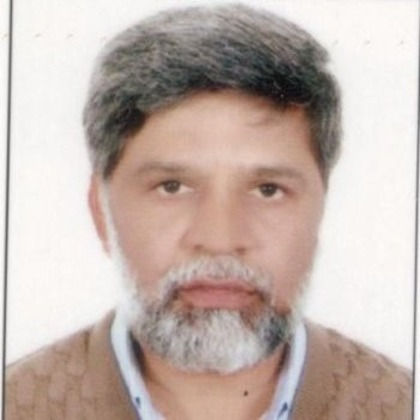
Dr. Abid Hussain Gullenpet
Radiologist
23 Years • MBBS, DMRD, FRCR
Bengaluru
Apollo Clinic, JP nagar, Bengaluru
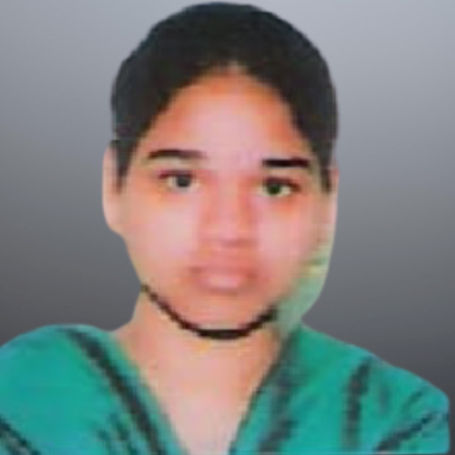
Dr. Matta Jyothirmai
Radiologist
5 Years • MBBS, MDRD
Hyderabad
Apollo Clinic Uppal, Hyderabad
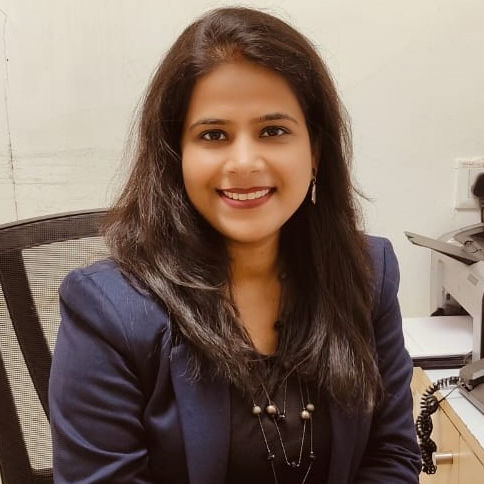
Dr Bhushana Suryawanshi
Radiologist
15 Years • MBBS, DMRE
Pune
Apollo Clinic, Viman Nagar, Pune
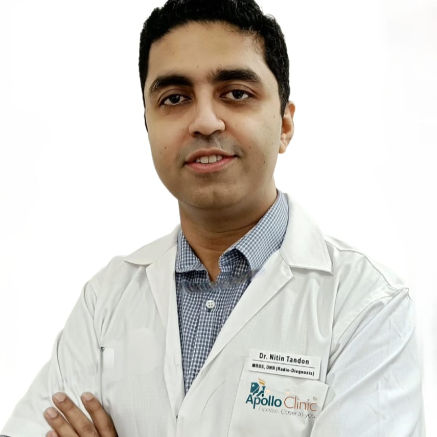
Dr. Nitin Tandon
Radiologist
13 Years • MBBS, DNB - Radiology
Delhi
Apollo Clinic East Of Kailash, Delhi
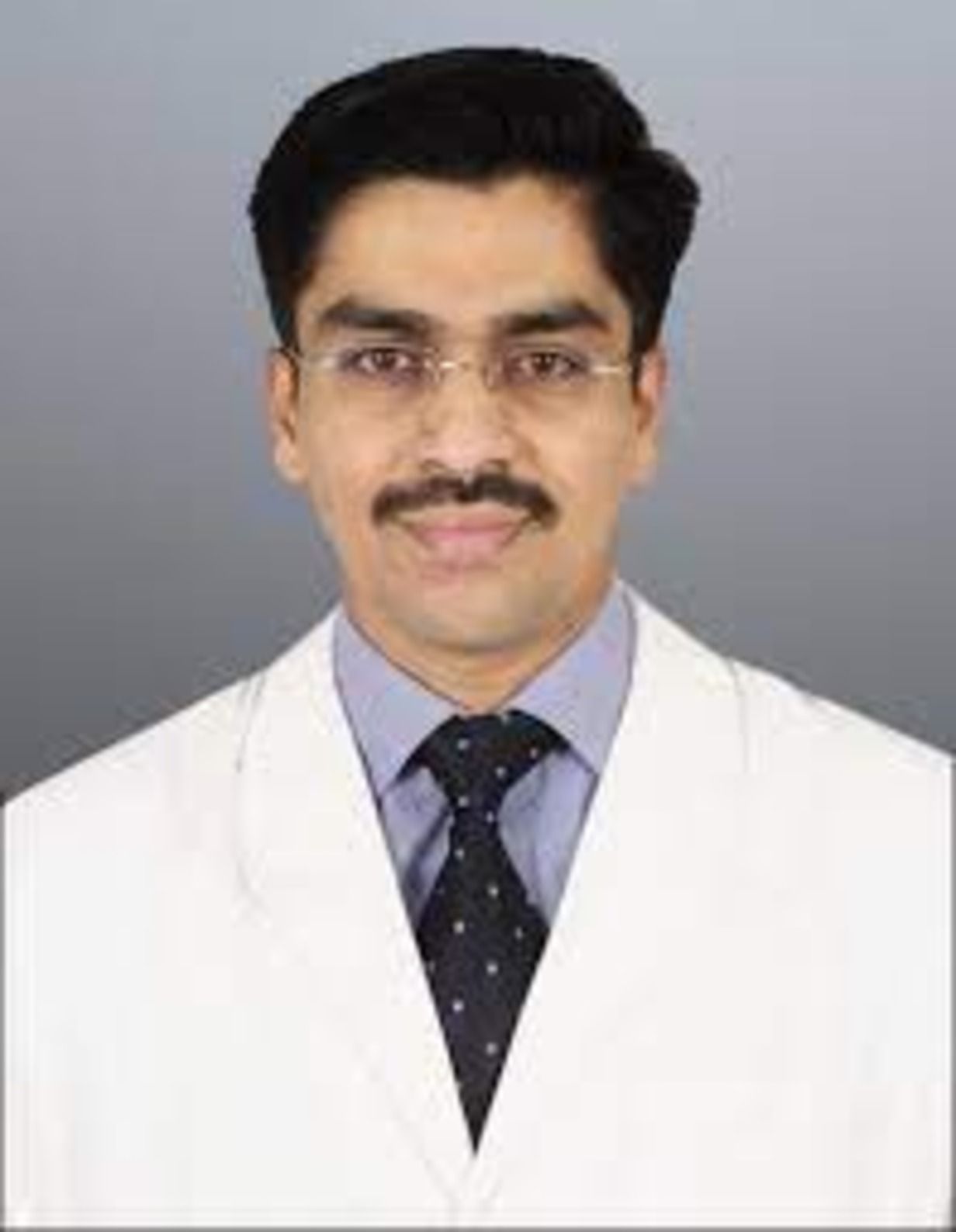
Dr. Savith Kumar
Interventional Radiologist
11 Years • MBBS, MD, FRCR, MMed, DM,
Bengaluru
Apollo Hospitals Bannerghatta Road, Bengaluru

Dr. Harshal Suresh Dhongade
Radiologist
5 Years • MBBS MD (Radio Diagnosis)
Nashik
Apollo Hospitals Nashik, Nashik
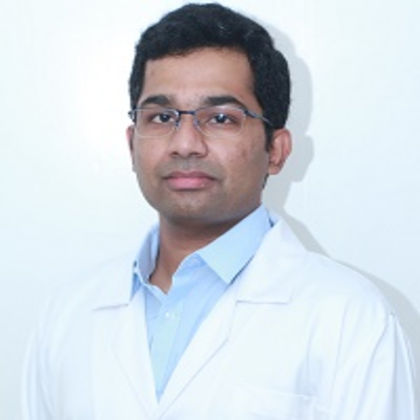
Dr. Pradyumna K Reddy
Interventional Radiologist
6 Years • MD, FMSKIR (Singapore), FVIR (Singapore)
Hyderabad
Apollo Hospitals Jubilee Hills, Hyderabad
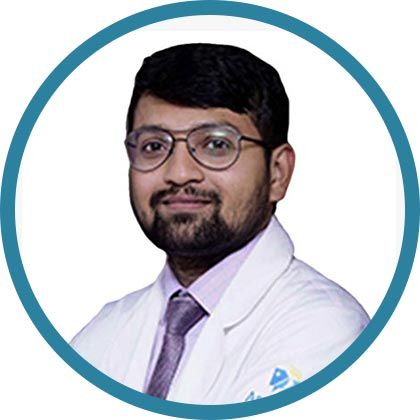
Dr. Arpit Taunk
Interventional Radiologist
12 Years • MD (Radiology), PDCC (HPB INTERVENTIONAL RADIOLOGY)
Lucknow
Apollomedics Super Speciality Hospital, Lucknow
(25+ Patients)
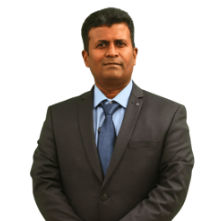
Dr. Sandeep Muzumder
Radiation Specialist Oncologist
21 Years • MBBS (JIPMER, Pondicherry), MD (AIIMS, New Delhi)
Bhubaneswar
Apollo Hospitals Old Sainik School Road, Bhubaneswar
Book Consult for Radiology Online
Booking an appointment with a skilled radiologist is now easier than ever with Apollo 24|7. Our platform offers convenient access to trusted radiology doctors allowing you to schedule an online radiologist consultation at your preferred time. With a vast array of radiologist reviews, you can choose a specialist who best suits your needs. Whether you require a breast screening doctor, a sonogram doctor, or any other radiology service, Apollo 24|7 ensures you receive top-notch care from experienced professionals at a transparent radiologist fee. Book your appointment today and take the first step towards better health.
What is Radiology?
Radiology is a medical speciality that utilises various imaging techniques to diagnose and treat diseases within the human body. Radiology uses non-invasive methods such as X-rays, ultrasound, computed tomography (CT) scans, and magnetic resonance imaging (MRI) to visualise internal structures and identify abnormalities. Radiologists play a crucial role in the early detection and accurate diagnosis of a wide range of conditions, including cancer, cardiovascular diseases, neurological disorders, and musculoskeletal problems. By providing detailed images of the body's internal structures, radiology enables targeted treatment planning and monitoring, ultimately improving patient outcomes and overall healthcare quality.
Who is a Radiologist?
A radiologist is a medical doctor who specialises in diagnosing and treating diseases using medical imaging techniques. In the Indian subcontinent, aspiring radiology doctors must first complete an MBBS degree, followed by a postgraduate degree in radiology, such as an MD or DNB in radiodiagnosis. Some radiologists further specialise through fellowship programs in specific areas like interventional radiology or paediatric radiology. Radiologists are trained to interpret images obtained from various modalities, including X-rays, CT scans, MRI, and ultrasound, to identify abnormalities and diagnose conditions. They work closely with other healthcare professionals to develop comprehensive treatment plans and monitor patient progress. Additionally, sonogram doctors play a vital role in preventive healthcare by conducting screening programs and identifying potential health risks early on.
What Do Radiologists Do?
Radiologists are highly skilled medical professionals who play a crucial role in diagnosing and treating various health conditions. Here are some of the key responsibilities of a radiology doctor:
Conducting diagnostic imaging tests such as X-rays, CT scans, MRI, and ultrasound to visualise internal structures and identify abnormalities
Interpreting medical images and providing detailed reports to referring physicians, aiding in the accurate diagnosis and treatment planning
Performing minimally invasive procedures, such as biopsies, under image guidance to obtain tissue samples for further analysis
Collaborating with other medical specialists to develop comprehensive treatment plans tailored to each patient's unique needs
Monitoring patient progress through follow-up imaging studies and adjusting treatment plans as necessary
Engaging in research activities to advance the field of radiology and improve patient care
Educating patients and their families about diagnostic procedures, potential risks, and the importance of preventive healthcare
Staying updated with the latest advancements in imaging technology and techniques to provide state-of-the-art care
What are the Other Sub-Specialities of Radiology?
Radiology is a vast field that encompasses several sub-specialities, each focusing on specific areas of the body or particular imaging techniques. Some of the key sub-specialities of radiology include:
Interventional Radiology: This sub-speciality involves the use of minimally invasive, image-guided procedures to diagnose and treat various conditions. Interventional radiologists perform procedures such as angioplasty, embolisation, and biopsies using real-time imaging guidance.
Diagnostic Radiology: This sub-speciality focuses on using imaging techniques to diagnose and monitor diseases. Diagnostic radiology doctors interpret X-rays, CT scans, MRIs, and ultrasound images to identify abnormalities and provide accurate diagnoses.
Neuroradiology: Neuroradiologists specialise in diagnosing and treating conditions related to the brain, spine, head, and neck using advanced imaging techniques such as CT, MRI, and angiography.
Paediatric Radiology: This sub-speciality deals with imaging of infants, children, and adolescents. Paediatric radiologists are trained to use age-appropriate techniques and minimise radiation exposure while diagnosing and monitoring various childhood conditions.
Musculoskeletal Radiology: Musculoskeletal radiologists focus on diagnosing and treating conditions related to bones, joints, and soft tissues. They use X-rays, CT scans, MRI, and ultrasound to identify fractures, arthritis, tumours, and other musculoskeletal disorders.
Nuclear Medicine: This sub-speciality involves the use of radioactive substances, called radiopharmaceuticals, to diagnose and treat diseases. Nuclear medicine specialists use techniques such as positron emission tomography (PET) and single-photon emission computed tomography (SPECT) to visualise metabolic processes within the body.
Breast Imaging: Breast screening doctors specialise in the early detection and diagnosis of breast cancer and other breast-related conditions. They use mammography, ultrasound, and MRI to screen for and evaluate breast abnormalities.
Cardiothoracic Radiology: This sub-speciality focuses on the imaging of the heart, lungs, and chest. Cardiothoracic radiologists use techniques such as chest X-rays, CT scans, and cardiac MRI to diagnose and monitor conditions like coronary artery disease, lung cancer, and congenital heart defects.
Abdominal Radiology: Abdominal radiology doctors specialise in the imaging of the abdominal organs, including the liver, pancreas, kidneys, and gastrointestinal tract. They use techniques such as CT, MRI, and ultrasound to diagnose and monitor conditions like liver cirrhosis, pancreatic cancer, and inflammatory bowel disease.
Emergency Radiology: Emergency radiologists provide imaging services in acute care settings, such as hospital emergency departments. They use various imaging modalities to quickly diagnose life-threatening conditions like traumatic injuries, strokes, and pulmonary embolisms.
What are the Examinations Conducted Under Radiology or Tests Performed by a Radiologist?
Radiologists perform a wide range of examinations and tests to diagnose and monitor various health conditions. Some of the most common examinations conducted in radiology include:
X-rays: X-rays are used to visualise bones, lungs, and other internal structures. They are commonly used to diagnose fractures, pneumonia, and dental problems.
Computed Tomography (CT) Scans: CT scans use X-rays and computer technology to create detailed cross-sectional images of the body. They are used to diagnose conditions like cancer, infections, and internal injuries.
Magnetic Resonance Imaging (MRI): MRI uses powerful magnetic fields and radio waves to produce detailed images of internal organs and tissues. It is particularly useful for diagnosing conditions related to the brain, spine, and joints.
Ultrasound: Ultrasound uses high-frequency sound waves to create real-time images of internal organs and structures. It is commonly used to monitor fetal development during pregnancy and to diagnose conditions like gallstones and thyroid disorders.
Mammography: Mammography is a specialised X-ray technique used to screen for and diagnose breast cancer. It involves taking low-dose X-ray images of the breasts to detect abnormalities.
Nuclear Medicine Scans: Nuclear medicine scans, such as PET and SPECT scans, use radioactive substances to visualise metabolic processes within the body. They are used to diagnose and monitor conditions like cancer, heart disease, and brain disorders.
Fluoroscopy: Fluoroscopy is a real-time X-ray technique that allows radiologists to visualise the movement of internal structures. It is used to guide procedures like angiography and to diagnose conditions like swallowing disorders.
Bone Densitometry: Bone densitometry, also known as dual-energy X-ray absorptiometry (DXA), is used to measure bone density and diagnose conditions like osteoporosis.
What are the Common Conditions & Diseases that Radiologists Treat?
The common conditions and diseases treated by sonogram doctors include:
Breast Cancer: Breast screening doctors use mammography and other imaging techniques to detect and diagnose breast cancer in its early stages.
Cardiovascular Diseases: Radiologists use angiography, CT scans, and MRI to diagnose and monitor conditions like coronary artery disease, heart valve problems, and aortic aneurysms.
Neurological Disorders: MRI, CT scans, and PET scans help radiology doctors diagnose brain tumours, strokes, multiple sclerosis, and other neurological conditions.
Musculoskeletal Disorders: X-rays, MRI, and CT scans are used to diagnose fractures, osteoarthritis, herniated discs, and other conditions affecting bones, joints, and soft tissues.
Gastrointestinal Diseases: Radiologists use fluoroscopy, CT scans, and MRI to diagnose conditions like inflammatory bowel disease, liver cirrhosis, and pancreatic cancer.
Lung Diseases: Chest X-rays and CT scans help radiology doctors diagnose pneumonia, lung cancer, COPD, and other respiratory conditions.
Urological Conditions: Ultrasound, CT scans, and MRI are used to diagnose kidney stones, bladder cancer, prostate cancer, and other urological disorders.
Vascular Diseases: Angiography and CT scans help radiologists diagnose and monitor conditions like peripheral artery disease, deep vein thrombosis, and pulmonary embolism.
Endocrine Disorders: Nuclear medicine scans and ultrasound are used to diagnose thyroid disorders, adrenal gland tumours, and other endocrine conditions.
Paediatric Conditions: Paediatric radiologists use various imaging modalities to diagnose congenital abnormalities, developmental disorders, and other conditions affecting children.
Reasons to See a Radiologist
There are several reasons why your doctor may refer you to a radiology doctor or a sonogram doctor:
Unexplained Pain: If you experience persistent pain in any part of your body, such as chronic headaches, back pain, or abdominal pain, a sonogram doctor can help diagnose the underlying cause using imaging techniques.
Cancer Screening: Radiologists play a crucial role in cancer screening programmes, such as mammograms for breast cancer, low-dose CT scans for lung cancer, and colonoscopies for colorectal cancer.
Injury or Trauma: In cases of accidents or sports injuries, radiology doctors use X-rays, CT scans, and MRI to diagnose fractures, ligament tears, and other musculoskeletal injuries, enabling prompt and appropriate treatment.
Chronic Conditions: Patients with chronic diseases like osteoarthritis, multiple sclerosis, or Crohn's disease may require periodic imaging to monitor disease progression and treatment effectiveness.
Pregnancy: Obstetric sonogram doctors use ultrasound to monitor foetal development, detect potential complications, and guide prenatal care decisions.
Pre-surgical Planning: Before certain surgical procedures, radiologists may use imaging techniques to map out the area of interest, helping surgeons plan the most effective and minimally invasive approach.
What Types of Procedures Do Radiologists Perform?
Radiologists perform a variety of therapeutic and surgical procedures in the field of radiology, including:
X-rays: Radiologists use X-rays to visualise bones, lungs, and other internal structures.
Computed Tomography (CT) Scans: CT scans provide detailed cross-sectional images of organs, bones, and blood vessels.
Magnetic Resonance Imaging (MRI): MRI uses powerful magnets and radio waves to create detailed images of soft tissues, organs, and the brain.
Ultrasound: Ultrasound uses high-frequency sound waves to visualise internal organs, blood vessels, and foetuses during pregnancy.
Mammography: Radiology doctors use low-dose X-rays to screen for breast cancer and diagnose breast abnormalities.
Fluoroscopy: This real-time X-ray technique is used to visualise the movement of internal structures, such as the digestive tract or joints.
Nuclear Medicine Scans: Radiologists use small amounts of radioactive material to visualise organ function and detect abnormalities.
Angiography: This procedure uses X-rays and contrast material to visualise blood vessels and diagnose conditions like blockages or aneurysms.
Bone Densitometry: Radiologists use specialised X-ray equipment to measure bone density and diagnose osteoporosis.
Image-guided Biopsies: Radiologists use imaging techniques to guide needle biopsies, obtaining tissue samples for diagnostic purposes.
Radiofrequency Ablation: This minimally invasive procedure uses heat generated by radio waves to destroy tumours or abnormal tissues.
Embolisation: Radiologists use catheters to deliver particles or medications that block blood flow to tumours or abnormal blood vessels.
Vertebroplasty and Kyphoplasty: These procedures involve injecting cement into fractured vertebrae to relieve pain and restore stability.
Stent Placement: Radiology doctors use imaging guidance to place stents in narrowed or blocked blood vessels, improving blood flow.
Drainage Procedures: Radiologists drain abnormal fluid collections, such as abscesses or cysts, using image-guided techniques.
Why Choose an Apollo 24|7 Radiologist?
Apollo 24|7 radiologists are highly skilled and experienced professionals dedicated to providing exceptional patient care. Our team comprises board-certified breast screening doctor and sonogram doctor with expertise in various subspecialties, ensuring accurate diagnoses and targeted treatment plans. We offer a comprehensive range of diagnostic and interventional radiology services using state-of-the-art equipment and advanced techniques.
Patients can access personalised care through online radiologist consultations or by booking appointments at our conveniently located clinics. Our user-friendly platform allows you to book radiologists, view radiologist fees, and read radiologist reviews to make informed decisions about your healthcare. With Apollo 24|7, you can easily find a doctor near your location by searching the phrase "radiologist near me" and receive seamless, high-quality care from the comfort of your home or at our well-equipped facilities.
What to Expect When Visiting a Radiologist?
When you visit a radiologist, you can expect a thorough evaluation and discussion of your medical history and current symptoms. Here's what a typical appointment may involve:
Consultation: The radiology doctor will review your medical records, discuss your symptoms, and answer any questions you may have about the imaging procedure or your condition.
Imaging Procedure: Depending on your specific needs, the radiologist will perform the appropriate imaging test, such as an X-ray, CT scan, MRI, or ultrasound. They will guide you through the process, ensuring your comfort and safety.
Image Interpretation: After the imaging procedure, the sonogram doctor will analyse the images and prepare a detailed report of their findings, which will be shared with your referring physician.
Follow-up: The radiologist may discuss the results of your imaging test with you and recommend further tests or treatments if necessary. They will collaborate with your primary care physician or specialist to ensure coordinated and comprehensive care.
How Can I Get an Appointment With a Radiologist?
To book an appointment with a radiologist on Apollo 24|7, you can follow these simple steps:
Online Booking: Visit the Apollo 24|7 website and navigate to the "Radiology" section. Select your preferred location, choose a sonogram doctor or breast screening doctor based on the radiologist reviews, and book a slot that suits your schedule.
App Booking: Download the Apollo 24|7 app on your smartphone, log in or create an account, and select the "Radiology" option. Follow the prompts to choose a radiologist, view radiologist fees and reviews, and book an appointment at your convenience.
Offline Booking: You can also call our helpline number or visit your nearest Apollo 24|7 clinic to book a radiologist. Our friendly staff will assist you in finding the right specialist and scheduling a consultation.
FAQs
What is radiology?
Radiology is a medical speciality that uses imaging techniques like X-rays, CT scans, MRIs, and ultrasounds to diagnose and treat diseases. Radiology doctors interpret these images to identify abnormalities and guide treatment decisions. Radiology plays a crucial role in detecting and monitoring various health conditions.
What does a radiologist do?
A radiologist is a medical doctor who specialises in interpreting medical images obtained through X-rays, CT scans, MRIs, and ultrasounds. They analyse these images to diagnose diseases, monitor treatment progress, and guide interventional procedures. Radiology doctors work closely with other healthcare professionals to provide comprehensive patient care.
What conditions can a radiologist help diagnose?
Radiologists can diagnose a wide range of conditions, including fractures, infections, cancers, and congenital abnormalities. Breast screening doctors
or sonogram doctors play a crucial role in detecting and monitoring diseases in various body systems, such as the musculoskeletal, cardiovascular, respiratory, digestive, and urinary systems, as well as in breast screening and women's health.
How can I find a radiologist near me?
To find a doctor near your location, search for the phrase radiologist near me, you can ask your family physician for a referral or search online directories. Many healthcare providers offer online tools to help you locate radiology doctors in your area. You can also check with your local hospitals or diagnostic centres for information on their radiology departments.
Can I book a radiologist online?
Yes, many healthcare providers now offer the option to book radiologist appointments online. This convenience allows you to schedule consultations or imaging procedures at your preferred time and location. To book an online radiologist consultation, visit the website of your doctor or use their mobile app, if available.
What is the fee for a radiologist consultation?
The radiologist fee varies depending on factors such as the type of imaging study, the complexity of the case, and your location. In India, the consultation fee for a radiologist typically ranges from Rs. 500 to Rs. 2,000. However, this fee may be covered under your health insurance plan. Check with your insurance provider for details.
Can I consult a radiologist online?
Yes, many healthcare providers now offer online radiologist consultation services. This allows you to discuss your imaging results or concerns with a radiologist from the comfort of your home. During an online consultation, you can review your scans, ask questions, and receive expert advice on your condition.
What should I expect during a radiology appointment?
During a radiology appointment, you will undergo the prescribed imaging study, such as an X-ray, CT scan, MRI, or ultrasound. The radiology doctor or technologist will guide you through the procedure and ensure your comfort and safety. After the scan, the radiologist will analyse the images and provide a report to your referring doctor.
Are there any risks associated with radiology procedures?
While most radiology procedures are considered safe, some involve exposure to ionizing radiation, which can slightly increase the risk of developing cancer over time. However, the benefits of these procedures often outweigh the risks. Radiologists use the lowest radiation dose possible and take precautions to minimize exposure, especially for pregnant women and children.
What kind of training and education does a radiologist have?
In India, radiologists complete a 5.5-year MBBS degree, followed by a 3-year MD or DNB in Radiology. They may further specialise through fellowship programmes in subspecialties like interventional radiology, neuroradiology, or paediatric radiology. Continuous medical education and staying updated with the latest advancements in the field are essential for radiologists.